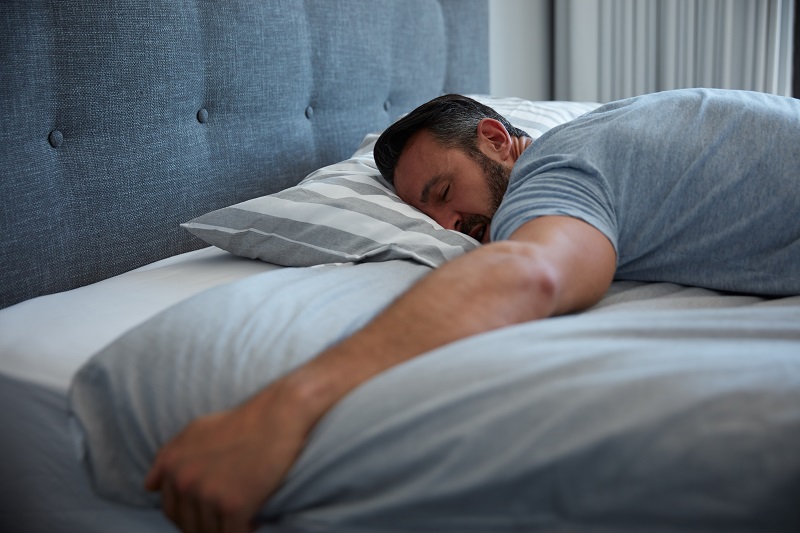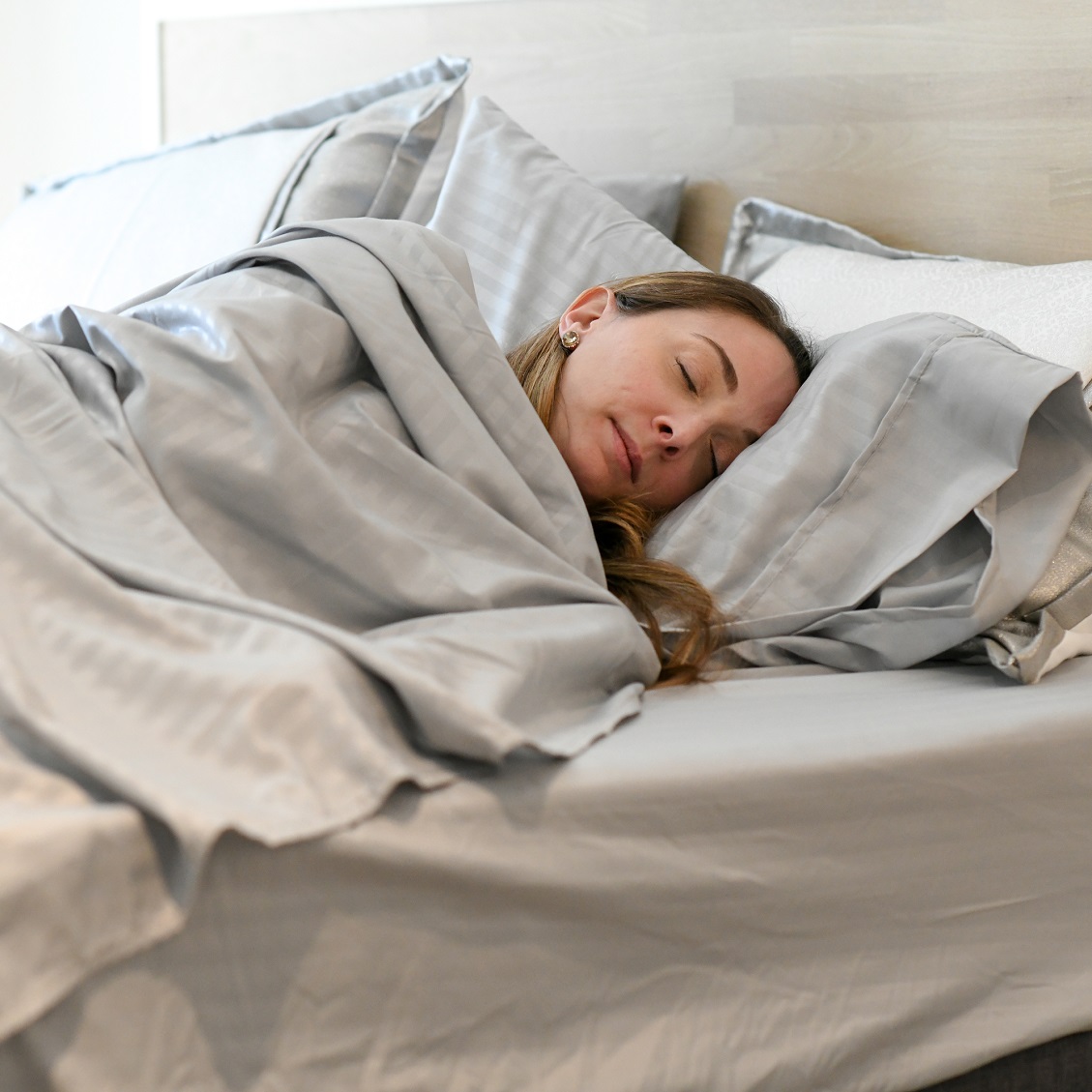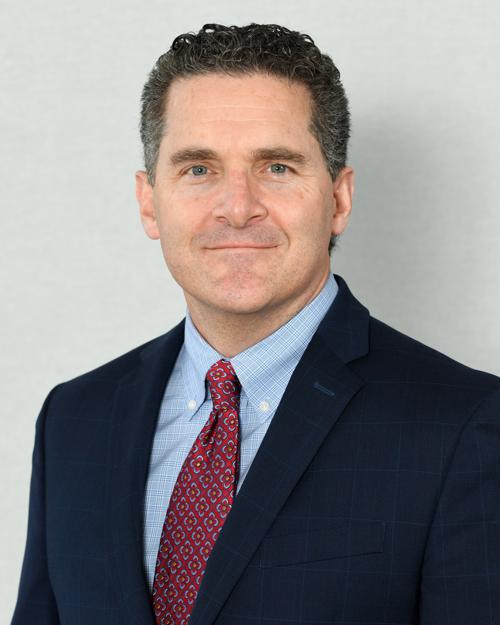Is Sleep Affecting Your Mental Health?

September 22, 2022
Do you feel cranky if you stay up too late and wake up early? One night may sour your mood but chronic sleep loss may contribute to mental-health disorders.
People who don’t get enough sleep are at increased risk of depression and anxiety.
“Sleep recharges your body, so too little sleep makes it harder to function,” pulmonology sleep expert Walter Wynkoop, M.D. says. “Ample sleep helps you regulate emotions; tired people tend to be more irritable.”
Sleep Quality Matters
How well you sleep also matters – poor-quality sleep may negatively affect your mental health. Even if you’re in bed for eight hours, the sleep may not be restorative.
“Sleep apnea and other sleep disorders reduce sleep quality, contributing to depression risk,” Dr. Wynkoop says. “You don’t sleep soundly; your sleep is fragmented, causing you to wake still tired.”
Many people take sleep for granted, choosing other late-night activities over getting rest. But prioritizing sleep may be mood-boosting and lower your risk of depression or anxiety.
“For optimal mental and physical health, sleep is as important as diet and exercise,” Dr. Wynkoop says. “Finding ways to make time for sleep can have a positive impact on health.”
Reasons to Get More Sleep
Skimping on sleep may allow for late-night work, conversations or binge-watching. But it may trigger or exacerbate depression, anxiety or other mental health conditions.
Sleep deprivation may also cause a cycle of chronic negative mood and sleep difficulties. Sleep-deprived people may get stressed more easily and worry when they should be asleep.
“It’s harder to cope with day-to-day stressors when you’re tired and grouchy,” Dr. Wynkoop says. “You may feel more self-doubt or lowered self-esteem, which contributes to stress levels.”
How can you tell if you aren’t getting enough sleep? If you’re sleep-deprived, you may experience:
- Daytime sleepiness
- Difficulty concentrating on tasks
- Memory problems
- A reduced attention span
- More dramatic mood changes
- Irritability
- Impatience
- A tendency to make poor decisions
Reasons to Avoid Getting Too Much Sleep
If you’re committed to increasing the amount of sleep you get, don’t go overboard. Too much of a good thing – in this case, sleep – isn’t healthy.
Sometimes, you may need extra sleep after an illness, physical exertion or stressful life event. But chronically sleeping 10 or more hours suggests a health problem.
“People who sleep too much may feel groggy when they wake up,” Dr. Wynkoop says. “Sleeping more than the recommended amount might be linked to depression or sleep disorders.”
Getting more than seven to nine hours of sleep per night may be a sign of:
- Depression
- Sleep apnea
- Narcolepsy
- Restless leg syndrome
If you regularly sleep nine-plus hours and wake up tired, see your doctor. They may recommend a sleep study to diagnose a sleep disorder.
How to Find the Right Sleep Balance
It’s possible to transform your sleep-deprived schedule into one that includes enough rest. Prioritizing sleep may improve your mood, productivity levels and mental health.
When it comes to sleep habits, small changes may be easiest to adopt. Try these ideas:
- Avoid caffeine after lunchtime, to encourage nighttime sleepiness
- Stop using your phone an hour before bed; the blue light may hinder sleep
- Create a relaxing nightly routine (perhaps showering, then reading) to establish bedtime
- Make sure that your bedroom is cool, dark and quiet
- Gradually shift your bedtime earlier by 15 minutes, not an hour or two
- Aim for the same bedtime and wake-up time every day, including weekends
Next Steps & Resources:
- Meet our source: Walter Wynkoop, M.D.
- To make an appointment with Dr. Wynkoop, or a doctor near you, call 800-822-8905 or visit our website.
The material provided through Healthier You is intended to be used as general information only and should not replace the advice of your physician. Always consult your physician for individual care.
Find a doctor near me
Clinical Contributors

Is Magnesium Good For Relaxation & Sleep?
Improve sleep and relaxation with magnesium. Dr. Leopold explains magnesium's benefits and how to incorporate it into your diet. Learn more & schedule an appointment.

Can Wearables Help You Sleep Better?
Improve your sleep? Learn how wearables may help. Dr. Pristas shares insights. Get expert advice; call 800-822-8905.
Find a doctor near me

Four Doctors Share Their Sleep Habits
Doctors share their sleep habits. Learn how much sleep you need for better health. Find a doctor near you. Call 800-822-8905.

Can Melatonin Gummies Help Kids Sleep?
Help your child sleep better. Learn about melatonin gummies for kids from pediatric sleep specialists. Get advice & improve bedtime habits.

5 Ways to Master the Back to School Sleep Schedule
Sleeping in during the summer is a top perk for kids, but breaking the habit before the new school year begins will ensure your children are well-rested and healthy.

Sweaty Sleeper? Find Out Why
Sweaty Sleeper? Learn why night sweats occur and when to seek help from a doctor like Dr. Elkhatib Smidt. Find relief and improved sleep. Call 800-822-8905.

